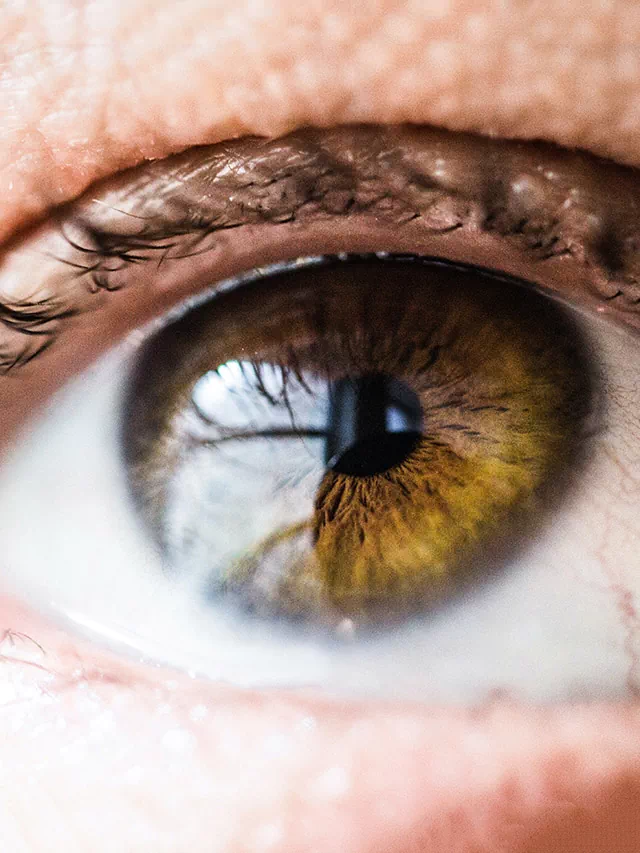Eye floaters are small, semi-transparent or translucent, dark specks or strings that float in the field of vision. They are usually seen when looking at a plain, bright background, such as a blue sky or a white wall. Eye floaters are usually caused by the normal aging process or by debris in the vitreous, the clear gel-like substance that fills the inside of the eye. In most cases, eye floaters are benign and do not cause any vision loss or other problems. However, if you suddenly notice a large number of floaters or flashes of light, or if your floaters are accompanied by vision loss or pain, you should see an eye doctor as soon as possible, as these could be signs of a more serious problem. In this article, we will discuss the causes, appearance, symptoms, treatment, prevention, and other aspects of eye floaters.
Here are some points to discuss about eye floaters
Causes
Eye floaters can be caused by the normal aging process, when the vitreous, a clear gel-like substance that fills the inside of the eye, begins to liquify and form clumps. These clumps cast shadows on the retina, the light-sensitive layer of cells at the back of the eye, which are seen as floaters. Floaters can also be caused by debris in the vitreous, such as cells or fibers, or by inflammation or bleeding in the eye.
Appearance
Eye floaters are small, dark specks or strings that float in the field of vision. They may appear as dots, circles, lines, or cobwebs and can be single or multiple. They are usually seen when looking at a plain, bright background, such as a blue sky or a white wall.
Symptoms
In most cases, eye floaters do not cause any symptoms. They may be annoying, but they do not interfere with vision or cause pain. However, if you suddenly notice a large number of floaters or flashes of light, or if your floaters are accompanied by vision loss or pain, you should see an eye doctor as soon as possible, as these could be signs of a more serious problem.
Treatment
In most cases, eye floaters do not require treatment. They may fade over time or become less noticeable as your brain adjusts to them. If floaters are particularly bothersome, your eye doctor may recommend laser surgery to break up the floaters or vitrectomy, a surgery to remove the vitreous and floaters from the eye.
Impact on vision
In most cases, eye floaters do not affect vision. They may be annoying or distracting, but they do not cause vision loss or blurriness. However, if floaters are accompanied by vision loss or other symptoms, such as flashes of light, this could be a sign of a more serious problem that needs medical attention.

Prevention
There is no way to prevent eye floaters caused by the normal aging process. However, you can reduce your risk of developing floaters due to inflammation or bleeding in the eye by maintaining good eye health, which includes getting regular eye exams, wearing protective eyewear when necessary, and not smoking.
Other causes
In addition to the normal aging process and debris in the vitreous, floaters can be caused by other conditions or events, such as inflammation or bleeding in the eye, eye injury or surgery, or certain medical conditions, such as diabetes.
Risk factors
Certain factors may increase your risk of developing eye floaters, including being over age 50, having a family history of floaters, having certain medical conditions, such as diabetes or high myopia (nearsightedness), or undergoing certain types of eye surgery.
When to see a doctor
You should see an eye doctor if you suddenly notice a large number of floaters or flashes of light, or if your floaters are accompanied by vision loss or pain. These could be signs of a more serious problem, such as retinal detachment, which is a medical emergency that requires immediate treatment to prevent vision loss.

Other considerations
If you have eye floaters, you should avoid rubbing your eyes, which can cause the floaters to become more pronounced and potentially cause other problems. You should also avoid straining your eyes, such as by reading in dim light or staring at a screen for long periods of time, as this can make floaters more noticeable. If you find floaters particularly bothersome, your eye doctor may recommend wearing sunglasses or other eyewear to reduce the glare and brightness that can make floaters more noticeable.
Conclusion
Eye floaters are common and usually benign, but they can be annoying or distracting. They are caused by the normal aging process or by debris in the vitreous and may appear as small, dark specks or strings floating in the field of vision. Most floaters do not cause any symptoms, but if you suddenly notice a large number of floaters or flashes of light, or if your floaters are accompanied by vision loss or pain, you should see an eye doctor as soon as possible, as these could be signs of a more serious problem. In most cases, floaters do not require treatment, but if they are particularly bothersome, your eye doctor may recommend laser surgery or vitrectomy to remove the floaters. You can reduce your risk of developing floaters by maintaining good eye health, such as getting regular eye exams and not smoking. Overall, it is important to pay attention to any changes in your vision and to see an eye doctor if you have any concerns.




